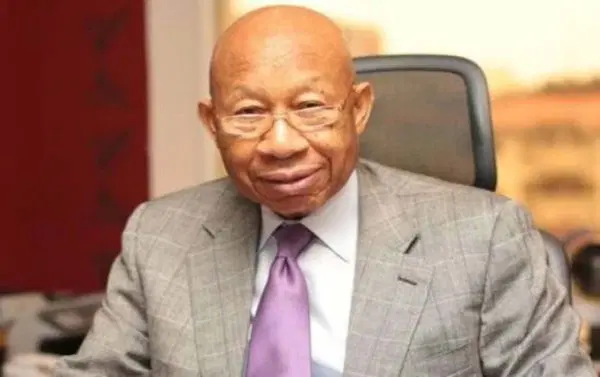The Nigerian Exchange (NGX) Group House in Lagos hosted a gathering of industry leaders, financial experts, and dignitaries on May 6, 2025, for a tribute session and special closing gong ceremony to honor the late Dr. Pascal Dozie, former President of the Council of the Nigerian Stock Exchange (NSE). The event celebrated Dozie’s transformative leadership, which profoundly shaped Nigeria’s financial markets and corporate landscape.
NGX Group Chairman Alhaji (Dr.) Umaru Kwairanga described Dozie as a visionary banker, entrepreneur, economist, and philanthropist who laid the foundation for a world-class exchange. “His tenure as NSE Council President was a pivotal chapter, marked by foresight and steady leadership that inspires confidence across Africa,” Kwairanga said. Dr. Ernest Ndukwe of MTN Nigeria praised Dozie’s role in professionalizing the private sector, while Gabriel Idahosa of the Lagos Chamber of Commerce and Industry hailed him as an ethical leader dedicated to nation-building.
Dr. Raymond Obieri, a former NSE Council President, recalled Dozie’s ability to bring calm and vision to challenging times, emphasizing his purpose-driven leadership. Ahonsi Unuigbe, Chairman of Nigerian Exchange Limited, urged the continuation of Dozie’s legacy through integrity and innovation. Olaniyi Yusuf of the Nigerian Economic Summit Group (NESG) highlighted Dozie’s foundational role in NESG, noting his vision for a competitive Nigerian economy. Uzoma Dozie, his son, offered a personal tribute, describing his father’s quiet wisdom and profound influence.
NGX Group CEO Temi Popoola called Dozie a mentor and nation-builder whose pioneering contributions transformed the financial sector. Other speakers, including Emmanuel Ikazoboh, Oscar N. Onyema, Olufemi Akinsanya, Elizabeth Ebi, and Frank Aigbogun, echoed praises for Dozie’s integrity and impact. The ceremony concluded with a symbolic closing gong, reaffirming the values of excellence, service, and integrity that Dozie championed, ensuring his legacy endures in Nigeria’s financial ecosystem.

Leave a Reply